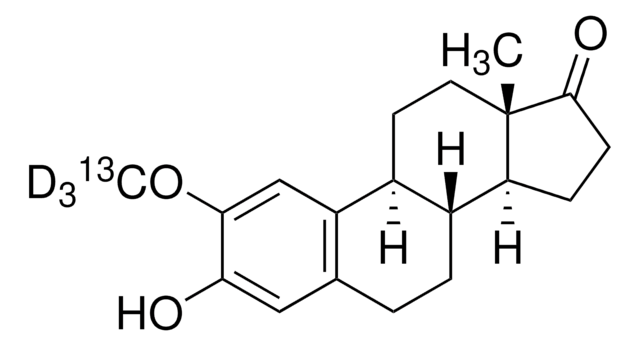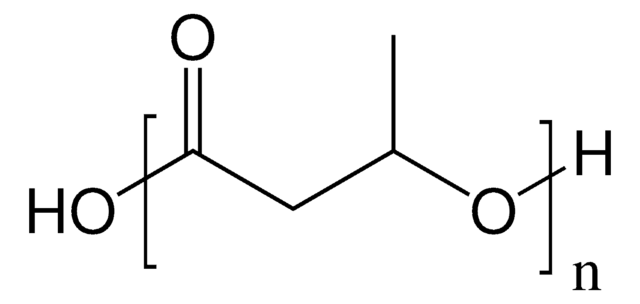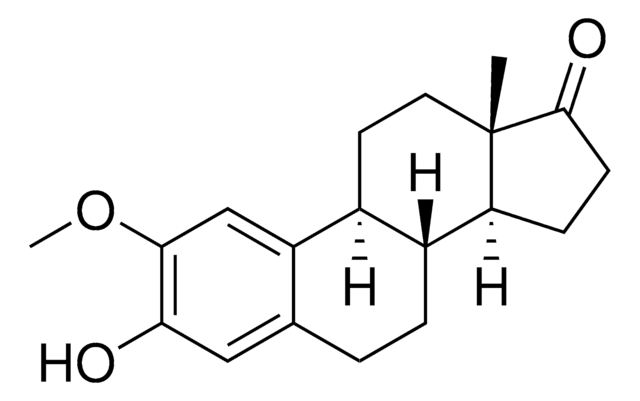719846
Resomer® X 206 S, poly(dioxanone)
Synonym(s):
PDS
About This Item
Recommended Products
form
solid
Quality Level
degradation timeframe
<6 months
inherent viscosity
1.5-2.2 dL/g, 0.1 % (w/v) in hexafluoroisopropanol(30 °C, Ubbelohde) (size 0c glass capillary viscometer)
transition temp
Tg −10-−5 °C
Tm 110-115 °C
storage temp.
−20°C
InChI
1S/C4H6O3/c5-4-3-6-1-2-7-4/h1-3H2
InChI key
VPVXHAANQNHFSF-UHFFFAOYSA-N
General description
Application
Legal Information
Storage Class Code
11 - Combustible Solids
WGK
WGK 3
Flash Point(F)
Not applicable
Flash Point(C)
Not applicable
Choose from one of the most recent versions:
Already Own This Product?
Find documentation for the products that you have recently purchased in the Document Library.
Articles
Main features of p-dioxanone, glycolide and lactide based copolymers
Interest in utilizing biodegradable polymers for biomedical applications has grown since the 1960s.
AliAliphatic polyesters, including polylactide and polyglycolide, are biodegradable polymers widely used in medical applications.
AliAliphatic polyesters, including polylactide and polyglycolide, are biodegradable polymers widely used in medical applications.
Our team of scientists has experience in all areas of research including Life Science, Material Science, Chemical Synthesis, Chromatography, Analytical and many others.
Contact Technical Service








